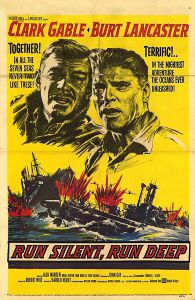
14 Oct Part 5: broken wrists and submarines.
Recovery is complicated, difficult to describe and slow.
This series of blogs about my experience of mental illness, is following a vaguely chronological path, but it hasn’t been a direct route back to health (if only we could be guaranteed that!), and so these posts might meander somewhat… following the sometimes circular, and occasionally completely re-routed journey back to wellness.
When I came back from seeing Sam* (my therapist – for more information about the type of psychotherapy i have benefited from please see here) and told Matt about my diagnosis and the treatment I was planning on undertaking… continued psychotherapy and anti-depressants, he, understandably, had a few questions. He didn’t understand my diagnosis, and was nervous about me taking the drugs. He didn’t know what it meant, or how long it would last. Like me, he was probably pretty scared. I didnt have the capacity to be able to explain what was going on. I also feared that I would have to justify everything – why I was ill and not coping – as I was still believing the lie that it was my fault and that if i had been stronger, more capable…. better, I would not have become ill in the first place.
So, because Sam is great – she suggested he had a chat with her. So she could explain to him what was going on and how he could help.
This should be obligatory. When someone is diagnosed with depression, it is likely that they are not their own best advocate. It would be great if it was compulsory for a loved one to come and chat to whoever has made that diagnosis – or at least someone who works in mental health. So they can be given some keys to be able to support the person who is ill back to recovery. Because it isn’t like another form of medical diagnosis.
When you break your wrist (I’ve done that twice), you go and see the Doctor and get a plaster cast put on (or ‘pot’ for all my friends from Yorkshire!). This cast is very useful. It ensures you don’t use the damaged part of your arm, it protects you. You rest the arm because you have no choice. It also alerts everyone around you to the fact that your arm is injured, that you may need help carrying things… you might need some support. This means your arm can heal.
When you are suffering with depression there isn’t a helpful sign to point out to you and to everyone else that you may need more help. That they might need to cut you some slack.
There also is nothing that ensures your brain gets the rest it so badly needs. How do you even do that? You can’t stop using it. You can’t switch it off whilst it recovers.
I knew that this was what I needed most of all. A rest. A way to stop overloading my brain with all the things I thought i should, ought and must do and be. I didn’t know how to do this.
Where i am from rest can often be mistaken for laziness.
I might manage to engineer some time to sit and have a cup of tea, or try and relax but I didn’t really know what this looked like. And i didn’t know how to relax without feeling pretty guilty. (Will definitely have to post about guilt sometime soon…)
Initially – at the point of crash (if you like) – I was told by Sam to go ‘deep and quiet’ like a submarine. Apparently the official naval term is “silent running”. It is what a submarine does when it is on a stealth manoeuvre, or fears it may be in danger. It goes deep to the bottom of the ocean and turns off all communication devices, so even its own navy cannot contact it. All non-essential systems and superfluous noise is switched off.
I found this a helpful idea. To switch off everything non-essential and superfluous. I reminded myself of this when I thought of all the people I felt I would be disappointing or letting down by stopping and saying no.
*not her real name.

Janet Burch
Posted at 17:36h, 14 Octoberonce again understand where you’re coming from elli. keep them coming xx
Kate
Posted at 15:01h, 15 October‘Silent running’ is a great analogy. Thanks for the blog xx